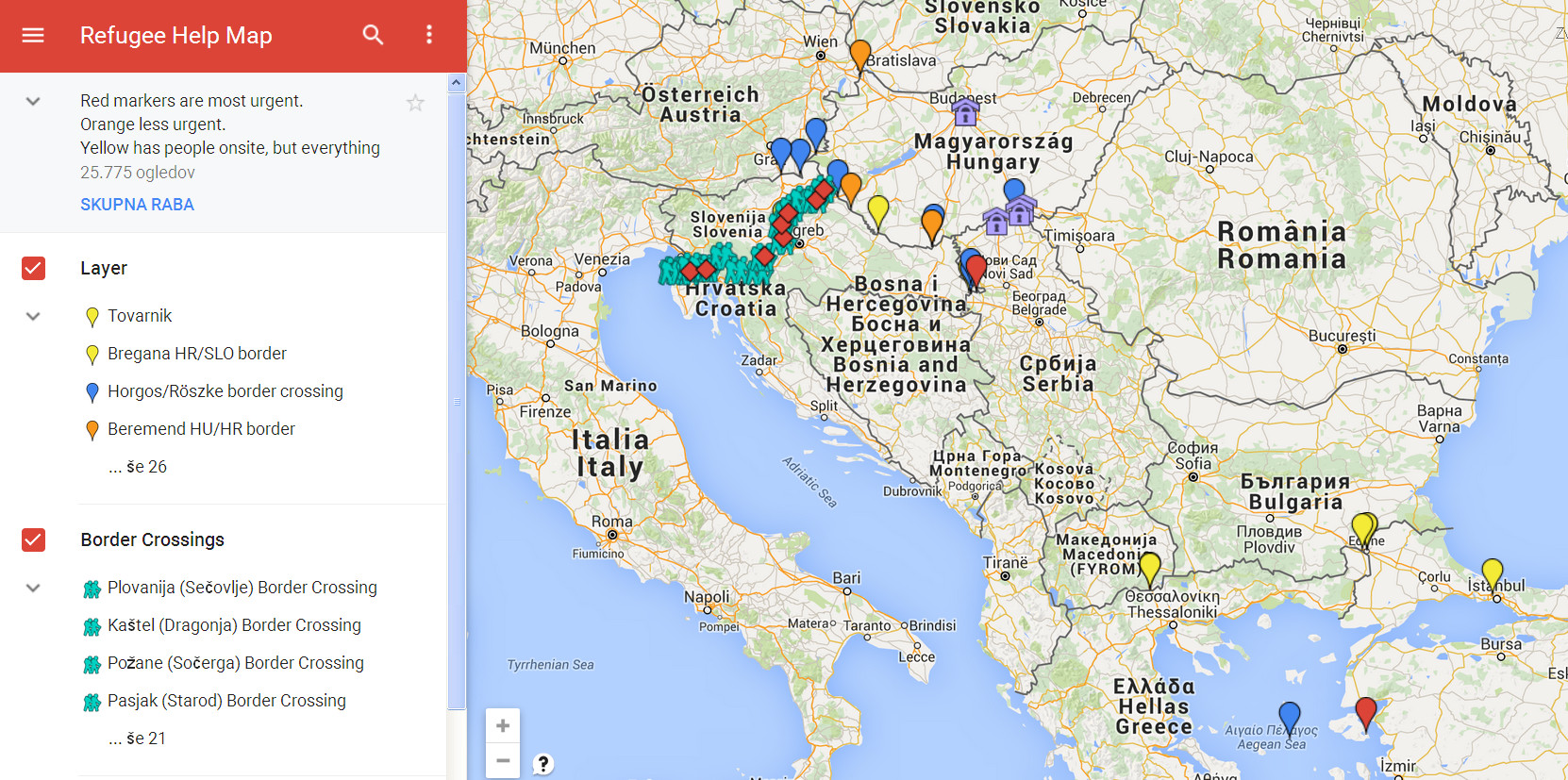What Light can Constructivist Analysis Shed on the Governance of the EU?
I. Introduction
The late 1990s witnessed a transformation in the way the European Union (EU) is analysed (Kohler Koch, Rittberger 2006). As a result, this ‘governance turn’ shifted academic interest from the integration process to the ‘great debate’ concerning governance (Pollack 2006, p. 44). Certain European scholars indicate that the integration-focused theoretical clash between neo-functionalism and intergovernmentalism has been replaced by an ideological battle between constructivism and rationalism (Christiansen et al 1999, Moravscik 1999). Despite rationalism once being considered the dominant stream of new-institutionalist thought, constructivist critiques have begun to erode rationalism’s effectiveness as both a normative (social) theory and as a research tool.
This essay seeks to illustrate how constructivist thought offers a broader and more comprehensive analytical understanding of EU governance than its rationalist counterpart. To highlight this, the first section will examine constructivism’s position amongst the other contemporary theories. The second section will identify specific components which aid constructivist approaches in governance analysis. The third section will discuss the dangers of ‘bridging the gap’ between constructivism and rationalism. Through this, it will be argued that although rational approaches are not becoming redundant, they are in danger of simply becoming an internal dimension of a wider constructivist perspective.
II. Situating Constructivism
Both constructivism – an interest-based approach to international relations that ‘sees interests as socially constructed’ (Rosamond 2007, p.130) – and rationalism are central in the debate about how to best analyse governance. Governance is described as ‘both a process and a state whereby public and private actors engage in the intentional regulation of societal relationships and conflicts’ (Kohler-Koch, Rittberger 2006, p. 28). As EU governance is driven by actor behaviour, social approaches are particularly pertinent. To clarify, this essay will demonstrate how constructivist thought offers a more complete understanding of this behaviour.
Before the constructivist ‘turn’, ‘a rationalist ontology dominated the study of the EU’ (Bache et al 2011, p. 41). Armed with a material-gains rationale – reminiscent of realist accounts of international relations (IR) – its main ‘challenger’ in the theoretical debate was reflectivism. However, following the end of the Cold War and the surge in European development, constructivism seized the moment. This is the first aspect of constructivism that is more succinct than rationalism, describing the historical development and expansion of the EU (see Risse 2009, p. 147). Stuttering rationalist accounts of EU history have undoubtedly led to growing confidence amongst constructivist scholars, and as a result, EU governance was thrust under their analytical microscope.
Christiansen (et al 1999) present constructivism as the ‘middle-ground’ approach to understanding European governance, separating rationalism and reflectivism. The constructivist position at the top of the triangle is doubly significant. It could be argued that this reflects its position as the more encompassing theory, in which rationalism and reflectivism are increasingly playing supporting roles. This is reflected in other fields of political science, notably in international relations where constructivism became a very popular ‘theory’ following the end of the Cold War. Drawing further on Christiansen’s (ibid, p. 536) research, his situation of constructivism is important (as everything between rationalism and reflectivism). However, there is an alternative interpretation to the understanding offered by both Christiansen and Bache (2011, p.41). Instead of perceiving these constructivist ‘points’ as ‘building bridges’, this essay argues that constructivism is drifting away from rationalism towards reflectivism, stretching the links to the former whilst absorbing the latter. Despite that it would be erroneous to claim the two are poles apart, a more accurate image would be an expanding constructivist pole converging on a static rationalist pole. This potential overlap will be assessed in the next section.
III. Constructivist Strengths
Institutional Development
Where does rationalism fall short in its analytical capabilities? First of all, the stress on ‘fixed preferences’ invites constructivist criticism (Schmidt 2010, Checkel 2001). Understanding the decision making processes of the actors invested in the EU is crucial to uncovering the motivators that influence governance and, here, the rigid structure of rationalist analysis will never shed new light on EU governance. The problem is twofold. Firstly, these ‘fixed preferences’ vary depending on which rational choice advocate is writing. Whether it be Hoffman’s (S. 1966) predilection for safeguarding sovereignty or Moravscik’s (1998) interest in economic security, a significant aspect of rational choice’s ideological cornerstone is ambiguous. Secondly, this reliance on ‘fixed’ preferences suggests fixed outcomes (dependent on the variable structure). This is to be expected from an explanatory tool that relies exclusively on material ontology for its foundations. In conjunction, these characteristics present a skewed version of reality and a confused theoretical framework. Schmidt (2010, p. 5) acknowledges the adoption of some flexibility in preferences. However, this is unable to address the larger issue of rationalism, failing to not just explain, but to understand institutional change. Constructivists like Checkel (2001) suggest a change in formula to enhance understanding of institutional development.
Checkel’s (2001, pp. 560-561) model stresses the relationship between an actor and its ability to ‘learn’ from prior relations with different institutions. This ‘alternate causal pathway’, therefore, implies that instead of fixed preferences creating fixed outcomes, outcomes stem from how an actor has ‘learnt’ from preceding interactions, which in turn ‘leads to preference change’. This ‘preference change’, therefore, has the capacity to reshape actor’s identities and interests. ‘Learning’ further accentuates constructivist understanding of European governance by suggesting a constructive role for regional hegemons. Whereas rationalists might suggest that the norms of hegemons are imposed regionally through ‘authority’, a constructivist analysis proposes that the ‘learning and socialisation process’ allow hegemons to ‘persuade because they have managed to create a common understanding of a problem’ (Saurugger 2013, p. 894). The Eurozone crisis offers a good example: although many member states were pushed to adopt austerity measures by the EU (read the ECB and Germany), Britain was not, yet it was this ‘common understanding’ of the problem that drove the government to adopt pre-emptive measures.
Rationalism’s inability to conceive preferences through sociological means confines its analytical scope. Social learning is a solid analytical starting point as the limitations of rationalist preference formation echo its structural weaknesses. Christiansen (et al 1999, p. 8) shares the widespread belief that rationalist thought is ‘underpinned by familiar positivist epistemology’. It can causally explain, but its narrowness restricts the chance of any real analysis. Chebakova (2008) expands on this by citing the benefit of an interpretive approach in the case of the Common Foreign Security Policy (CFSP). The author similarly urges ideational and sociological examination, but, nonetheless, declares ‘recognition of material ontology’ to be vital in allowing researchers to ‘employ conventional qualitative and quantitative methods’, before interpreting the data in a ‘constructivist manner’ (ibid, p. 4). This approach is tied with analysis of the CFSP, and Hill’s (1993) rationalist conclusion that as it poorly serves the interests of the member states, thus it is an inefficient failure. Although a constructivist might empirically come to the same conclusion, it will doubtlessly consider broader aspects of the CFSP – how it was historically formed; how, despite resistance, it has become a ‘second pillar’ issue; and how it projects a global identity (Chebakova 2008). Identity is a central characteristic of constructivism, and rationalist ignorance of its value is crucial to this essay’s argument – so it would be constructive to analyse it in closer detail.
Identity
The constructivist idea represented by Christiansen (et al 1999) reflects a reality that does not rely exclusively on material interests, but one that is constructed through ideational, social, and material ontologies (Chebakova 2008, p. 5). An integral tenet of constructivism is identity. While not all rational choice scholars are averse to assigning identity a central role, most approach it reductively, simplifying the concept as individual desires and preferences (Aguair 2008). Moreover, Aguair (2008, p. 7) notes the rational choice rejection of identity as an ‘obscure’ abstract. So how does this impact upon EU governance analysis? An example would be the idea of a ‘common European identity’ – as it is almost incomprehensible for a rational choice thinker (Risse 2004). This shared identity is valuable in explaining European integration and decision-making, and Risse (2004) cites the example of enlargement as ‘identity construction’ in action. This essay does not claim that a rationalist opinion (of principals allowing enlargement after a cost-benefit analysis) is illogical, but simply demonstrates certain characteristics of governance that rationalism is fundamentally designed to overlook. Constructivism inevitably sheds new light on EU governance simply as it can incorporate more ontologies into its understanding, and a larger arsenal allows it to analyse both endogenously and exogenously.
This ‘common identity’ is extended to Adler and Barnett’s (1996) ‘security community’, and more concretely, the CFSP. Rational choice analysis of security governance prioritises the protection of national interests. Constructivists, in contrast, would argue that the CFSP has ‘contributed to a convergence of national foreign policies and to a growing sense of a common international identity’ (Wagner 2003, p. 576). Chebakova (2008) argues that this not only represents the importance of common identity, but it also reveals how institutionalising norms collectively can result in a new institution. This links well with Checkel’s (2001) theory that, through repetition and continual ‘social learning’, identities can be reshaped and preferences redefined. This essay draws on the CFSP as an example not only because its development can be well analysed from a constructivist perspective, but because in doing so, this essay confronts Cowles’ (2003, p. 110-111) assertion that constructivists rarely address ‘bad’ things that have been socially constructed. This only strengthens claims that constructivism is vital to governance analysis, as it opens countless more avenues to uncover why the CFSP is ineffective and unpopular. In short, EU governance analysis benefits as constructivism can self-reflect endogenously, whereas rationalists are constrained by an exogenous outlook.
Decision-making and reform is central to EU governance. Consider the sweeping reforms of the European governance process in the Lisbon treaty, particularly the transition to qualified majority voting in the European Council. This provision threatens the power of individual member states in the policy-making process, as under the previous unanimity method of voting, unwanted reforms could easily be avoided by a single vote; this is especially impactful for powerful states that continue to exert influence over certain smaller states. Yet, the ‘logic of appropriateness’ model was followed, and members voted not out of national preference, but on what is best for the group European Community.
Approaching from a game-theory perspective, decision-making – which takes other player’s best interests into account (reminiscent of the Nash equilibrium) – incorporates a collective (and constructivist) element, whilst rationalist players would follow their strategy regardless of the other players. Whereas a rationalist explanation of this reform is narrow, constructivists could tackle it in numerous ways. They could argue that this reform demonstrated a moment of European self-awareness, recognising itself as a common community with a shared identity – and protecting this identity by acting to reduce the democratic deficit. The deficit, following a constructivist analysis, can be considered a discursive creation – built by social pressure and discontentedness (Christiansen et al 1999, p. 541). This challenges rationalism’s national preference theory, as although the public desired a more transparent decision-making process, certain member state governments may have benefited most from unanimous voting. The role of identity not only undermines rationalist decision-making rationale, but also its hierarchical decision-making structure. Here constructivism sheds a significant amount of light on EU governance. Not only does it allude to identity as an important factor in decision-making, it is also valuable for ‘tracking’ the member state’s rationale throughout the process. A rationalist rationale would be fixed throughout, so there would never be significant insight into how this important facet develops.
The relationship between agents and structures is central to this debate. (Risse 2004, Saurugger 2013). Rational thinkers consider the two to be distinct; however constructivists contest this by arguing that ideas and identity can permeate this detached connection (Saurugger 2013 p891). The ‘logic of appropriateness’ reveals agents and structures to be ‘co-constituted’, showing agents to be influenced by the social context established by institutionalised structures (Hoffman, M. 2000). Identity plays a crucial role in shaping both the institutions and the social context (or – what should be considered correct behaviour). Risse (2004, p. 151) claims this insight ‘allows for a deeper understanding of the impact of the EU on its member states’, and consequently, hinting that rationalist analysis of EU governance suffers from the ‘logic of consequentialism’.
Discourse
Another constructivist component – absent in rationalist analysis – is discourse and the power of language. Rationalists perceive discourse as ‘symbolic’ and not substantive and, therefore, it has no place in its analytical toolkit (Christiansen et al 1999). Constructivists, on the other hand, assign huge significance to discourse in understanding institutional change and policy reform. Chebakova (2008, p. 7) claims that ‘speech acts [can] be institutionalized into norms… change realities and provide the meaning for action’. This process can be applied analytically to concepts that rational choice often misunderstands – such as the constitutionalization of Europe (Rittberger, Schimmelfennig 2006, pp. 1158-1159). Here they track this communitarian process from the debate that launched the legal framework, to the support of subnational actors which resulted in member states being ‘forced to be concerned about their image’, and finally to the national level and the Rome Treaty establishing the European Constitution. Language and communication are constructivist norms (Aalberts 2004, pp. 35-37) and offer insightful observations about the history and creation of many EU institutions (EMU etc). Rational choice’s understanding of these institutional developments is again restricted by its limited scope, and the inception of these lasting institutions suggests the role of discourse is more than ‘symbolic’.
IV. ‘Bridging the Gap’
Panke (2006) promotes the use of the theories in conjunction, claiming constructivist approaches are better suited to low politics, while rationalist approaches more appropriate for high politics. She reasons that as two non-substantive theories, there is no need for conflict, as they are merely research tools that are used to form hypotheses for primary IR theories.
So why are attempts to bridge the gap relevant to EU governance? The concept suggests that the approaches are not opposed, and instead, can be used in a complimentary fashion to probe deeper than before. However, most attempts to ‘bridge the gap’ rely on the assumption that interests are not a social construct, thus preferences do not play a central role in a constructivist analysis. Empirical evidence illuminated in this essay would suggest that states’ interests can be shaped by social interaction, and that sometimes, material gains are intrinsic to a constructivist decision-making process. The ideational foundations of EU constitutionalization and the CFSP suggest Panke’s (2006) conclusions are ascertained through outdated perceptions of an overly-idealistic perception of constructivism. Attempts to bridge the gap are harmful for governance analysis, as any theoretical compromise made by constructivism can only result in a narrower understanding of European political process.
V. Conclusion
This essay supports the argumentation that constructivism plays a vital role in EU governance, whilst presenting rational choice as an ineffective research tool that can be absorbed by the broader diagnostic approach offered by constructivism. This essay has demonstrated that despite efforts to ‘bridge the gap’ between constructivism and rationalism, the latter approach is fatally hindered by its ‘ontological blindness’ (Pollack 2006, p.32), its theoretical disconnect with structures and agents, and its short-sightedness in recognising the impact of ideas, identity, and discourse in the governance process. Finally, it has illustrated that constructivism does, indeed, shed markedly more light on EU governance compared to its counterparts, whereas conversely, the limitations of rationalist analysis dramatically reduce its capacity to improve upon a constructivist perspective – especially as the core tenets of rationalism such as materialism and preference convergence are equally pertinent to a constructivist assessment.
References
Aalberts, T. (2004) ‘The Future of Sovereignty in Multilevel Governance Europe – A Constructivist Reading’ Journal of Common Market Studies, 42(1), pp.23-46.
Adler, E. Barnett, M. (1996) ‘Governing Anarchy: A Research Agenda for the Study of Security Communities’, Ethics and International Affairs, 10(1), pp63-98.
Aguair, F. (2008) ‘Can Rational Choice Cope With Identity?’ Paper presented to ISA Forum of Sociology, Barcelona, pp.1-25.
Bache, I., George, S. Bulmer, S. (2011) Politics in the European Union, 3rd Edition, Oxford University Press: Oxford.
Chebakova, A. (2008) ‘Theorizing the EU as a Global Actor: a Constructivist Approach’, The Maturing European Union – ECSA-Canada Biennial Conference Paper, pp.1-16.
Checkel, J. (2000) ‘Bridging the Rational Choice/Constructivist Gap? Theorizing Social Interaction in European Institutions’, ARENA working papers – workshop: ‘Institutionalism and the Study of the European Union, University of Washington, Accessed online http://www.sv.uio.no/arena/english/research/publications/arena-publications/workingpapers/working-papers2000/wp00_11.htm on 12/11/13.
Checkel, J. (2001) ‘Why Comply? Social Learning and European Identity Change’, International Organization, 55(3), pp.553-588.
Christiansen, T., Jorgenson, K., Wiener, A. (1999) ‘The Social Construction of Europe’, Journal of European Public Policy, 6(4), pp.528-544.
Cowles, MG. (2003) ‘Non-State Actors and False Dichotomies: Reviewing IR/IPE Approaches to European Integration’, Journal for European Public Policy, 10, pp102-120, in Bache, I., George, S., Bulmer, S. (2011) Politics in the European Union, 3rd Edition, Oxford University Press: Oxford, p45.
Hill, C. (1993) ‘The Capability-Expectations Gap, or Conceptualizing Europe’s International Role‘ Journal of Common Market Studies, 31(3), pp305-328, in Chebakova, A. (2008) ‘Theorizing the EU as a Global Actor: a Constructivist Approach’, The Maturing European Union – ECSA-Canada Biennial Conference Paper, pp.1-16.
Hoffman M (2000) ‘Entrepreneurs and Norm Dynamics: An Agent-Based Model of the Norm Life Cycle’, Workshop on Political Theory and Policy Analysis, Indiana University, pp.1-38. Accessed online –http://scholar.google.co.uk/scholar_url?hl=enq=http://opim.wharton.upenn.edu/~sok/papers/h/Hoffmann_norms.docsa=Xscisig=AAGBfm2sQZbZyD9spduG4g8aaMF9BC1Y9goi=scholarrei=0nKMUsmLJ8aN7QaLzYDoCgved=0CC8QgAMoADAA 14/11/13.
Hoffman, S. (1966) ‘Obstinate or Obsolete? The Fate of Nation-State and the Case of Western Europe’, Daedalus, 95(3), pp.862-915.
Kohler-Koch, B. Rittberger, B. (2006) ‘Review Article: The ‘Governance Turn’ in EU Studies’, Journal of Common Market Studies, 44(1), pp.27-49.
Moravscik, A. (1998) The Choice for Europe: Social Purpose and State Power from Messina to Maastricht, Cornell University Press: Ithaca.
Panke, D. (2006) ‘The Differential Impact of Communicated Ideas: Bridging the Gap between Rationalism and Constructivism’, Hamburg Review of Social Sciences, 1(3), pp.312-342.
Pollack, M. (2007) ‘Rational Choice and EU Politics’ in Jorgenson, K., Pollack, M. Rosamond, B. (eds) (2007) Handbook of European Union Politics, Sage Publications: London, pp.31-55.
Risse, T. (2004) ‘Social Constructivism and European Integration’, in Wiener, A. Diez, T. (eds) (2004) European Integration Theory, Oxford University Press: Oxford, pp.159-176.
Risse, T. (2009) ‘Social Constructivism and European Integration’, in Wiener, A. Diez, T. (eds) (2004) European Integration Theory, 2nd Edition, Oxford University Press: Oxford, pp.144-160.
Rittberger, B. Schimmelfennig, F. (2006) ‘Explaining the Constitutionalization of the European Union’, Journal of European Public Policy, 13(8), pp.1148-1167.
Rosamond, B. (2007) ‘New Theories of European Integration’ in Cini, M. Borragan, N. (2007) European Union Politics, (2nd Edition), Oxford University Press: Oxford, pp. 117-136.
Saurugger, S. (2013) ‘Constructivism and public policy approaches in the EU: from ideas to power games’, Journal of European Public Policy, 20(6), pp.888-906.
Schmidt, VA. (2010) ‘Taking Ideas and Discourse Seriously: Explaining Change through Discursive Institutionalism as the fourth ‘New Institutionalism’, European Political Science Review, 2(1), pp.1-25.
Wagner,W. (2003) ‘Why the EU’s Common Foreign and Security Policy will remain Intergovernmental: A Rationalist Institutional Choice Analysis of European Crisis Management Policy’, Journal of European Public Policy, 10(4), pp.576-595.
—
Written by: Matthew Richmond
Written at: University of Sheffield
Written for: Simon Bulmer/Owen Parker
Date written: November 2013










